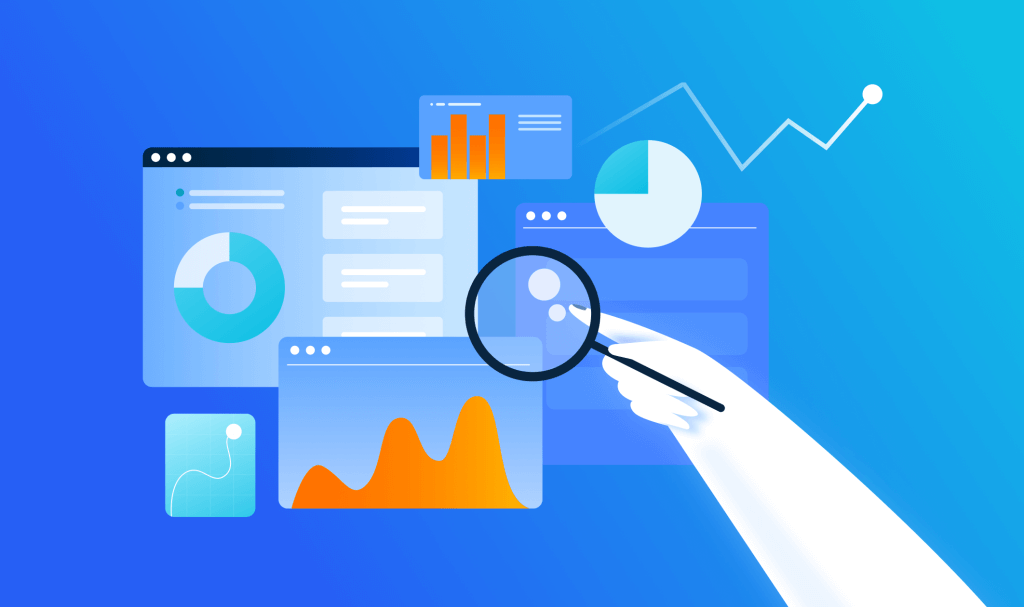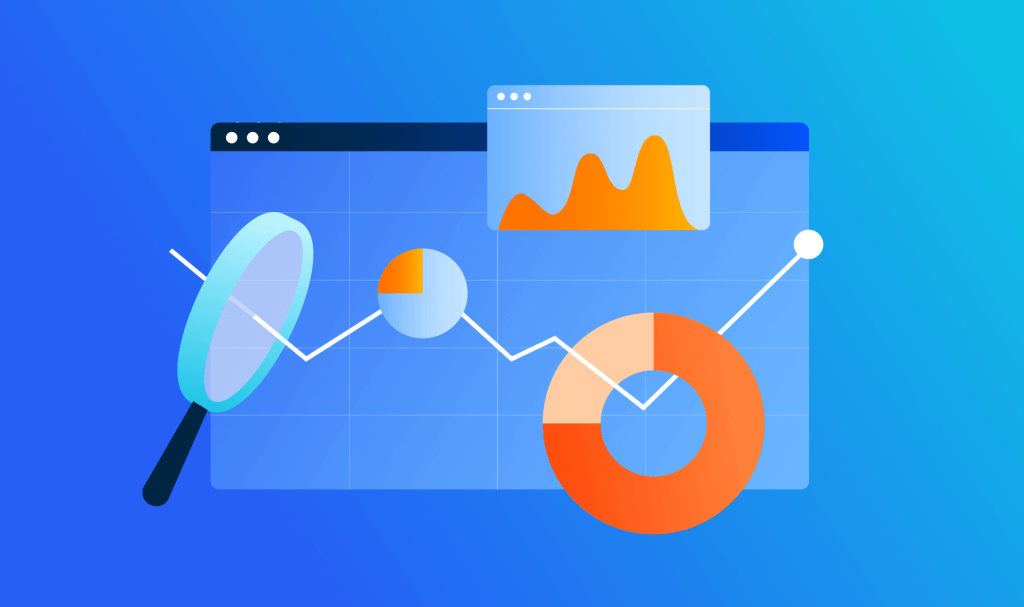Digital market research tools have become indispensable for businesses looking to gain a competitive edge in the online landscape. With the ever-increasing importance of digital marketing, understanding customer behavior, market trends, and competitor strategies has become crucial for success. In this article, we will explore the world of digital market research tools, their types, benefits, popular options, and best practices for utilizing them effectively.
Types of Digital Market Research Tools

A. Survey Tools
Survey tools are invaluable for collecting feedback directly from consumers. They enable businesses to create and distribute online surveys, capturing quantitative data on customer preferences, satisfaction levels, and purchasing behavior. SurveyMonkey and Google Forms are popular examples of survey tools that offer user-friendly interfaces and robust analytics capabilities.
B. Social Media Listening Tools
Social media listening tools allow businesses to monitor social media platforms for mentions of their brand, products, or industry-related keywords. By analyzing social media conversations, sentiments, and trends, companies can gain insights into customer opinions, identify emerging trends, and address potential issues promptly. Aim Insights and Brandwatch are prominent players in this space.
C. Keyword Research Tools
Keyword research tools help businesses identify relevant search terms and phrases used by their target audience. These tools provide data on search volumes, competition levels, and related keywords, enabling companies to optimize their website content, improve search engine rankings, and drive organic traffic. Semrush and Ahrefs are widely used for keyword research.
D. Web Analytics Tools
Web analytics tools track and measure website performance, providing valuable data on user behavior, traffic sources, conversion rates, and more. These insights help businesses understand their online audience, optimize marketing campaigns, and improve website usability. Google Analytics is the most popular web analytics tool, offering a comprehensive suite of features.
Benefits of Using Digital Market Research Tools
Utilizing digital market research tools offers several significant benefits to businesses:
A. Enhanced Customer Insights
Digital market research tools enable businesses to gather detailed information about their target audience, including demographics, preferences, and buying habits. This knowledge allows companies to tailor their products, services, and marketing messages to better meet customer needs and expectations.
B. Competitive Analysis
Digital market research tools help businesses gain a deeper understanding of their competitors’ strategies, strengths, and weaknesses. By analyzing competitors’ online presence, content marketing efforts, and social media activities, companies can identify areas for improvement and develop more effective marketing campaigns.
C. Improved Marketing Strategies
Data collected through digital market research tools can inform marketing strategies, helping businesses optimize their advertising spend, identify high-performing channels, and craft compelling content. By analyzing consumer behavior and preferences, companies can create personalized campaigns that resonate with their target audience, ultimately driving higher conversion rates.
Popular Digital Market Research Tools

Several digital market research tools have gained significant popularity among businesses:
A. Google Analytics
Google Analytics is a robust web analytics tool that provides comprehensive insights into website performance. It offers detailed reports on user behavior, traffic sources, conversion rates, and more. With its user-friendly interface and powerful features, Google Analytics is widely used by businesses of all sizes.
B. SEMrush
SEMrush is a versatile tool that combines keyword research, competitive analysis, and SEO optimization capabilities. It allows businesses to identify profitable keywords, analyze competitors’ strategies, and track their website’s search engine rankings. SEMrush is particularly beneficial for companies looking to enhance their online visibility and organic traffic.
C. Aim Insights
Aim Insights is a valuable tool for content research and social media analysis. It helps businesses identify the most shared and engaging content in their industry, enabling them to create content that resonates with their target audience. Aim Insights also provides insights into social media trends, influencers, and competitor performance.
D. Ahrefs
Ahrefs is a comprehensive SEO tool that offers features like backlink analysis, keyword research, and rank tracking. It helps businesses improve their website’s search engine rankings, discover link-building opportunities, and analyze competitors’ backlink profiles. Ahrefs is widely regarded as one of the most powerful tools in the SEO industry.
How to Choose the Right Digital Market Research Tools
When selecting digital marketing research tools, consider the following factors:
A. Define your research goals
Clearly define your research objectives to determine which tools align with your specific needs. Identify the type of data you require, such as website analytics, keyword insights, or social media sentiment analysis.
B. Consider your budget
Different tools come with varying pricing structures, so evaluate your budget and select tools that provide the most value for your investment. Some tools offer free versions or trial periods, allowing you to assess their suitability before committing.
C. Evaluate features and functionality
Compare the features and functionality of different tools to ensure they align with your requirements. Consider factors such as ease of use, integration with other platforms, reporting capabilities, and customer support.
Best Practices for Using B2B Market Research Tools

To maximize the benefits of digital marketing research tools, follow these best practices:
A. Set clear objectives
Clearly define your research goals and the specific insights you aim to obtain. This clarity will guide your tool selection, data collection methods, and analysis techniques.
B. Use multiple tools for comprehensive insights
No single tool can provide all the insights you need. Combine multiple tools to gather a more comprehensive understanding of your audience, competitors, and market trends. Each tool offers unique perspectives and data points.
C. Regularly analyze and interpret data
Collecting data is only the first step. Regularly analyze and interpret the data obtained from your chosen tools. Look for patterns, trends, and correlations that can inform your business decisions and marketing strategies.
Limitations of Digital Marketing Research Tools
While digital marketing research tools offer valuable insights, they also have some limitations:
A. Dependence on accurate data
Digital market research tools rely on accurate and reliable data for meaningful analysis. Inaccurate or incomplete data can lead to erroneous conclusions and misguided decisions. Ensure the data you collect is of high quality and integrity.
B. Inability to capture qualitative data
Digital market research tools primarily focus on quantitative data, such as numbers and statistics. They may not capture the qualitative aspects of consumer opinions, emotions, or experiences. To gain a holistic understanding, consider supplementing digital tools with qualitative research methods like interviews or focus groups.
Conclusion
Digital market research tools have revolutionized the way businesses gather insights, understand their target audience, and stay ahead of the competition. By utilizing tools such as survey platforms, social media listening tools, keyword research tools, and web analytics platforms, companies can make data-driven decisions, improve marketing strategies, and drive business growth. Remember to set clear objectives, choose the right tools, and regularly analyze and interpret the data to unleash the full potential of digital market research.
If you’re ready to take your market research efforts to the next level, we invite you to request a demo from Aim Technologies. Our cutting-edge platform offers a comprehensive suite of digital market research tools to empower your business with actionable insights.
FAQs
1. Are digital marketing research tools suitable for small businesses?
- Absolutely! Digital marketing research tools come in various pricing tiers, making them accessible to businesses of all sizes. Many tools offer free or affordable options that provide valuable insights even with limited resources.
2. Can digital market research tools help improve search engine rankings?
- Yes, tools like SEMrush and Ahrefs offer features specifically designed to optimize search engine rankings. By conducting keyword research, analyzing competitors’ strategies, and monitoring backlinks, businesses can enhance their SEO efforts and increase organic traffic.
3. Do digital marketing research tools provide real-time data?
- Yes, many digital marketing research tools provide real-time or near-real-time data. Web analytics tools like Google Analytics offer live dashboards and social media listening tools can track mentions and conversations as they happen.
4. How can I ensure data accuracy when using digital market research tools?
- To ensure data accuracy, use reputable tools and platforms that have established credibility. Double-check data sources and implement data validation processes to minimize errors. Regularly review and audit your data collection methods to maintain data integrity.
5. Can I use digital market research tools for offline market research?
- While digital marketing research tools primarily focus on online data, they can still provide valuable insights for offline market research. For example, web analytics tools can track website visits generated from offline advertising efforts, and social media listening tools can capture conversations about your brand or industry offline as well.




